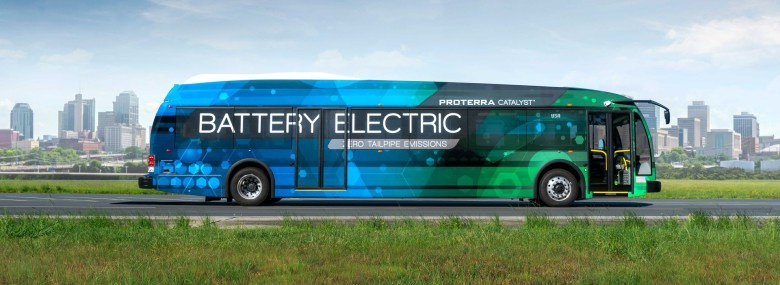Electric bus drove a record 1770 km per charge

On September 19, 2017, the American company Proterra announced that its Catalyst E2 Max electric bus this month set a world record in range from one charge. The new record is 1101.2 miles, i.e. 1772.2 km. This large 12 meter machine is equipped with a 660 kWh battery.
In recent years, Proterra has steadily increased its battery capacity and power plant efficiency. In 2015, her bus traveled 415 km at a power source of 257 kWh, last year - 970 km at 440 kWh.
As you can see, not only the battery itself, but also energy efficiency increases. In 2015, it was 415/257 = 1.61 km per 1 kWh, in 2016 it was 970/440 = 2.2 km, and now it is already 2.69 km per 1 kWh. It is much cheaper than dragging on gasoline.
')
Interestingly, the previous world record (1,631 km) belongs to the lightweight EV 46 bus, which doesn’t come close to the Catalyst E2 Max long-range machine in size and passenger capacity. The new model of the bus already fully complies with the requirements of commercial carriers both in terms of travel range and capacity. Perhaps soon electric buses can be seen on real commercial flights on our roads.
For a commercial vehicle, an important parameter is its cost. Price Catalyst E2 Max has not yet been announced, this is an experimental bus. But it should be noted that since 2010 the cost of lithium-ion batteries has dropped by 72%, that is, almost four times, according to Bloomberg New Energy Finance. Obviously, these 660 kWh batteries account for a significant part of the cost of the bus.
Electricity when calculating the cost per kilometer is cheaper than gasoline, so that the bus will bring savings with each kilometer. In addition, there are fewer moving parts in the electrical system than in the internal combustion engine, so it will be cheaper to maintain. Thus, the higher cost of these buses will pay off in a few years.
Proterra has also developed an automatic charging system for electric buses, freeing the technology from patents.
Source: https://habr.com/ru/post/370827/
All Articles